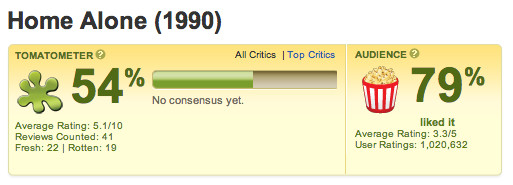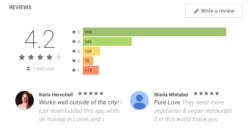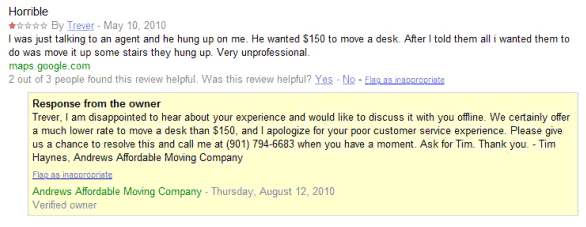One negative review can seriously damage your brand, especially if it gets a lot of publicity. Think about United Airlines and their recent debacle with the overbooked flight—bad PR cost them millions in brand perception and future sales loss. Not to mention the lawsuit coming their way. When it comes down to it, part of your marketing campaign should be keeping the negative publicity out of the spotlight (aka: online reputation management). The tricky part of this is wrangling in such a vast and uncontrollable force as the internet.
Judging Creates a Sense of Superiority
As human beings, we love judging. We develop a sense of superiority from trashing a company that upsets us or uplifting a brand that went above and beyond to make sure we had a good experience. Apps like People and television shows like Community and Black Mirror give insight into how judging others can become a dangerous addiction. The truth is, consumers enjoy feeling like they’re being heard. You give consumers recognition by putting their reviews on your site, showing that you’re open and honest about the service you’re providing. Plus, it shows that you care about how your customers perceive you. Building a relationship with a customer means more to you than getting a single lousy sale.
Dealing with the Negative Nancies
The reality is that a lot of people are only going to notice your one-star reviews. These negative nancies are just looking for a reason not to use your service. They put more trust in the negative reviews and completely neglect the positive ones. You’re going to have to deal with these people, so it’s important that you have as few negative reviews as possible. That’s where online reputation management comes in. Digital resources are being used to level the marketing playing field and ensure quality products and exceptional customer service get the rewards they deserve.
Reputable Review Sources
Where literal word-of-mouth used to be the only way to get an honest opinion about a company, the internet now gives people the opportunity to share their experiences with a brand to millions of people. Using review sites like Yelp, Rotten Tomatoes and Trip Advisor, we can now offer and access reputable reviews from the comfort of our home. How these reviews affect potential customers researching a product is still being studied though. According to an article from Researcher’s Digest, some studies have found that “we remain impressed after reading early positive reviews, even if negative reviews come later”. The way we interact with reviews plays an important role in user experience and should be a factor you consider before placing reviews and testimonials on your website.
The Importance of Reviews
If you can convince potential customers that you have a large following of people who use and appreciate your product, you’re more likely to see a conversion. According to Power Reviews, more than 90% of people say that customer reviews have an influence in their purchasing decisions. Another study found that 63% of consumers are more willing to purchase from a website if it has product reviews. This means that without reviews, you’re losing 60-70% of your potential customers. With apps especially, people see reviews before they even see a product description, since the star rating appears under the app title. Since star ratings are also visual eye-catchers, they steal the show before your word-heavy product description.
Mix in Some Negative
You may think that having all positive reviews is a win for your business, but you would be mistaken. People are slow to trust a site that boasts only five-star reviews, assuming the rating has been manipulated by the company itself. We think to ourselves ‘can It be true that there is absolutely nothing negative to say?’ and disregard the five star reviews. By including a couple three- and four-star reviews, you give legitimacy to what you’re putting out on your website. This creates a more ‘real’ buying experience, and makes your positive reviews more credible in return.
Respond to the Negative
Even more important than showing off the positive reviews is responding to the negative ones. If potential customers see that you truly care about the people who use your product, they’re more likely to trust you with their business. If you have a template for responding to negative reviews, it can be a much more efficient process. For example, 1. Respond to the question/concern 2. Offer useful suggestions 3. Provide a contact email address at the end of the response. Check out this article for a more thorough analysis of how to respond to negative reviews. You should never be afraid to hear bad things about yourself. If anything, some negative reviews might give you insight into ways that you can improve your company. Plus, people know that ratings are subjective, so negative reviews won’t completely destroy your brand. A food item, for
example, might be delicious to one person and disgusting to another. It all depends on the taste buds. Another tactic is to publicly offer compensation to unsatisfied customers. If you choose to offer a refund or reshipment of a better-quality product, you end up earning your most loyal customers. They see that you’re actually concerned about their satisfaction and may even go online and change their review to make it more positive. However, this also lets people know that they can take advantage you by complaining about a product (even if there really wasn’t anything unsatisfactory about it). Another study found that exposing a product’s weaknesses also helped set realistic expectations, which reduced the number of product returns. The key takeaway: Give your negative reviews just as much attention as the positive ones.
Track Your Reputation
Use websites like mention.com and Google Alerts to keep track of where your brand is being mentioned and what people are saying. This is also a great source to use if you’re looking for some good PR. Have a new building opening downtown? Share the articles published online by third party sources (ie: news sites) on social media to give credibility to your brand’s importance to the community. You can use other tools to measure your success and spot room for improvement.
Social Proof
According to this article from Buffer, social proof is “the concept that people will conform to the actions of others under the assumption that those actions are reflective of the correct behavior”. This concept has been boosted by the boom of social media. An example of this is when night clubs limit entry and force patrons to wait in a line outside. They hope that passerby’s will assume the club is popular based on the fact that people are willing to wait outside for the experience. Even though this isn’t an example of online reputation management, it still has to deal with maintaining a brand image. There are four different types of social proof:
- Expert
- Celebrity
- User
- Wisdom of the crowds
The first type of social proof—expert social proof—is when your product is endorsed by a credible expert, like a health care professional. An example of this would be Sunlighten’s marketing tactic to utilize influencer marketing through Instagram. When a Doctor that specializes in health posts about their saunas, they receive extra brand exposure and a stamp of approval from a source that thousands of people trust with their health news and advice. If you consider it in the context of the halo effect (we judge someone’s opinion based on our overall impression of them), it makes sense that an ‘influencer’s’ opinion would matter more than a strangers. If they have a positive reputation, whatever they are involved with is seen as positive by association.
Celebrity social proof is when you receive endorsements from celebrities. This concept comes from the extended self, which is made up of the self and possessions. The extended self “suggests intentionally or unintentionally, we view our possessions as a reflection of ourselves”. Because of this, we look for products that signify group membership and establish our position in society. This relates to online reputation management because it shows how some reviews mean more than others—negative feedback from a celebrity carries more significance than a negative review from a non-famous person.
User social proof is approval from current users of a product or service. This might include testimonials, case studies and online reviews. It’s the most relevant social proof in relation to our online reputation management services. Studies have found that reviews with visual elements are seen as even more trustworthy than text-only reviews, and reviews that tell a story are memorable for potential buyers. Consider including photos with the reviews featured on your site, and showcase reviews that tell a story with your online reputation management strategy.
The wisdom of the crowds social proof is based on approval from large groups of people. It goes off the idea that if so many people are using a product/service, it must be legit. The science behind this phenomenon is FoMO or ‘fear of missing out’. It is a “pervasive apprehension that others might be having rewarding experiences from which one is absent” and is categorized as a form of social anxiety. It’s been mentioned a lot lately in relation to social media, and is seen in calls to action like ‘join more than 20,000 of your peers’. If someone sees that a company has been reviewed by thousands of people, they’re more likely to trust that company. Online reputation management ensures all your company reviews are clearly seen by the right people.
Contact Us
Whether you’re dealing with hotel reputation management or your retail persona, We ensure that the social media buzz surrounding your brand is positive, help you quickly identify and respond to negative reviews, and feature your positive reviews where potential customers can easily see them. Internet reputation management is the cornerstone of PR. To get started on you online reputation management, contact us!







